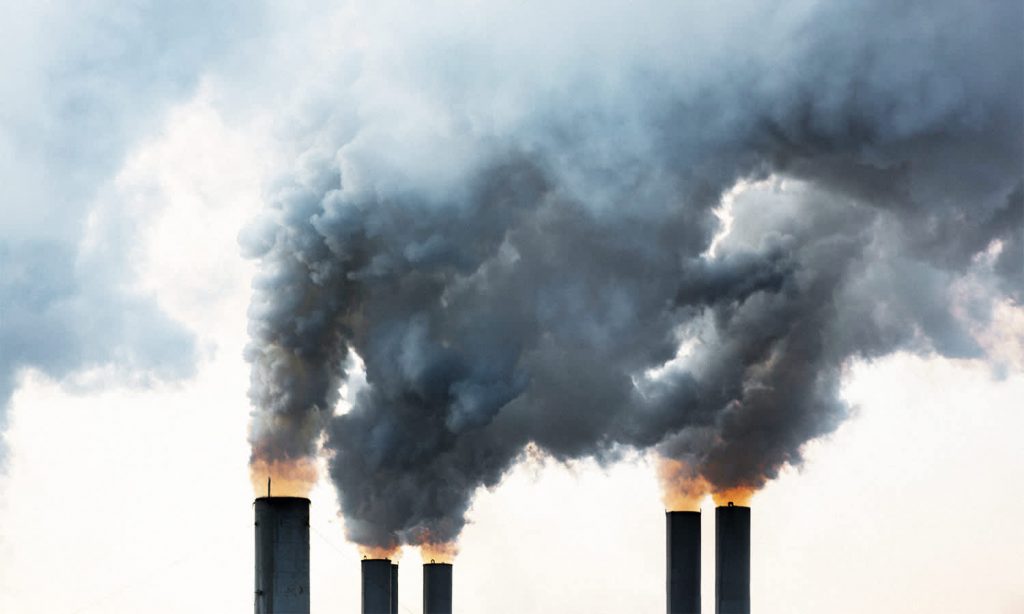As Australia and the rest of the world tries to come to terms with the fact that the government has essentially no plan to get to net zero, big business is stepping up to fill the gaping holes that the federal is leaving in our climate approach.
Leading business and industry groups have said that they support a strengthening of carbon caps, with many already factoring in carbon emissions into their operations.
Much of the net zero plan is either based upon as-yet-unproven technology or emissions reductions offsets via not cutting down forests. The Prime Minister, in his own presentation of the plan on Monday, stood in front of a slide that read “the plan is based on our existing policies.” So, business as usual then.
Except that it isn’t business as usual in some sectors as the rest of Australia comes to terms with the fact that it’s not going to be the federal government who come to the rescue.
This is according to the Carbon Market Institute’s survey of 409 large carbon-emitting businesses and investors. It found that 79% of them support tightening the carbon caps of the already existing Safeguard Mechanism framework.
The Safeguard Mechanism, which is run by the Clean Energy Regulator, sets a carbon emission baseline limit for the nation’s 200 biggest polluters.
It’s a framework that is already in place to limit the carbon emissions of large polluters and was introduced under the coalition in 2016. Companies that emit more than 100,000 tonnes of carbon dioxide annually are forced to purchase offsets or pay penalties.
In theory, it’s a great idea, but in practice, it’s so toothless that industrial emissions have actually risen by 12% under the scheme.
Still, it provides a workable framework that businesses want to see strengthened to limit emissions.
The Business Council of Australia recently reported that Australia should “enhance and expand the role of the Safeguard Mechanism to deliver a strong carbon investment signal to invest in new low, zero and negative emissions technology.”
The BCA, which has long been critical of any climate policy that would limit the profits of industry, also called for Australia to lift its 2030 targets from 26-28% to 46-50%, in line with UN recommendations.
The principal national advisor for the Australian Industry Group also said that Australia’s emissions targets “need to be clear if they are to assist decisions by business”.
“Many businesses look to the existing emissions Safeguard Mechanism, which could be built on to drive emissions cuts in large facilities while preserving competitiveness,” they said.
While Morrison’s administration has also ruled out carbon pricing, whereby businesses have to pay for carbon emissions released and continue to rip on the Labor party for previously introducing the scheme, one of the world’s largest financial organisations, the International Monetary Fund, have told wealthy nations that they need to implement the policy if we are to reach our climate goals.
With G20 leaders meeting in Rome currently, IMF managing director Kristalina Georgieva told a meeting there that “putting a robust price on carbon lies at the heart of any comprehensive policy package.”
“Here, G20 leadership will be critical, particularly when it comes to building support for an international carbon price floor. Moving together could also help overcome political constraints,” she told world leaders.
Georgieva said that the IMF has found that industrial projects which increased energy efficiency and transitioned to renewables created more jobs than those which didn’t. She also said that many of these projects create far more jobs than fossil fuel industry projects.
Comprehensive investment in green energy could increase global GDP by 2% by 2030 and create 30 million new jobs, she told the G20. However, that investment could only be driven if carbon-emitting projects are incentivised away from with the introduction of carbon pricing.
The United Nations secretary-general Antonio Guterres also told the G20 on Tuesday that current emissions targets were not enough and that, at the current rate, we’re on track to warm the planet by a catastrophic 2.7 degrees Celsius.
It is “clear” that nations must price carbon to decarbonise their economies, Guterres said.
While Morrison’s “plan” falls well short of the type of action that is needed to achieve serious emissions reductions, it’s clear that other key actors like states, industry and global institutions are ready to step in to do the work that his administration won’t.
Read more stories from The Latch and subscribe to our email newsletter.







